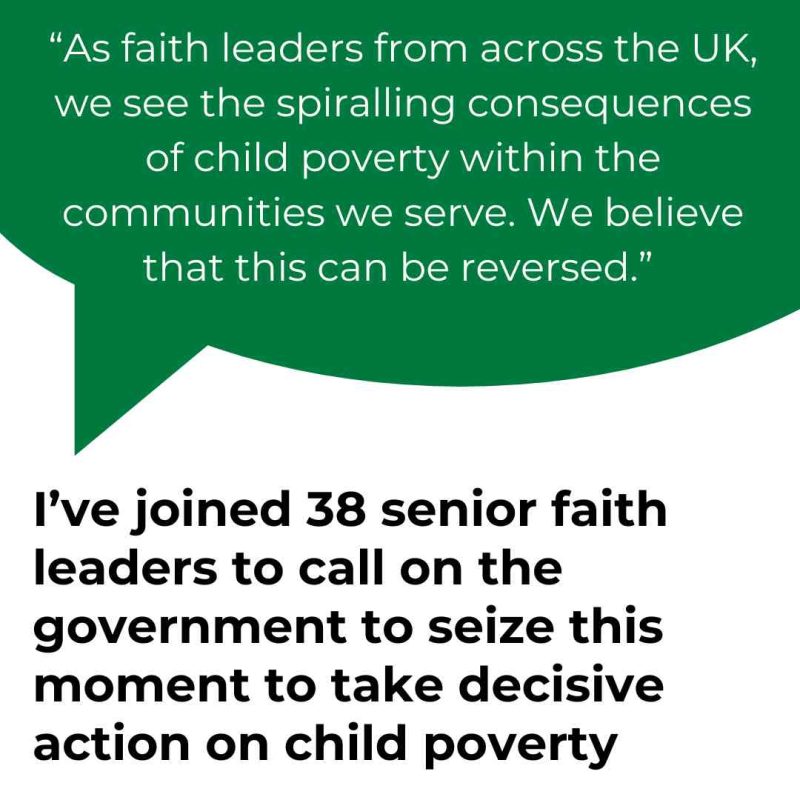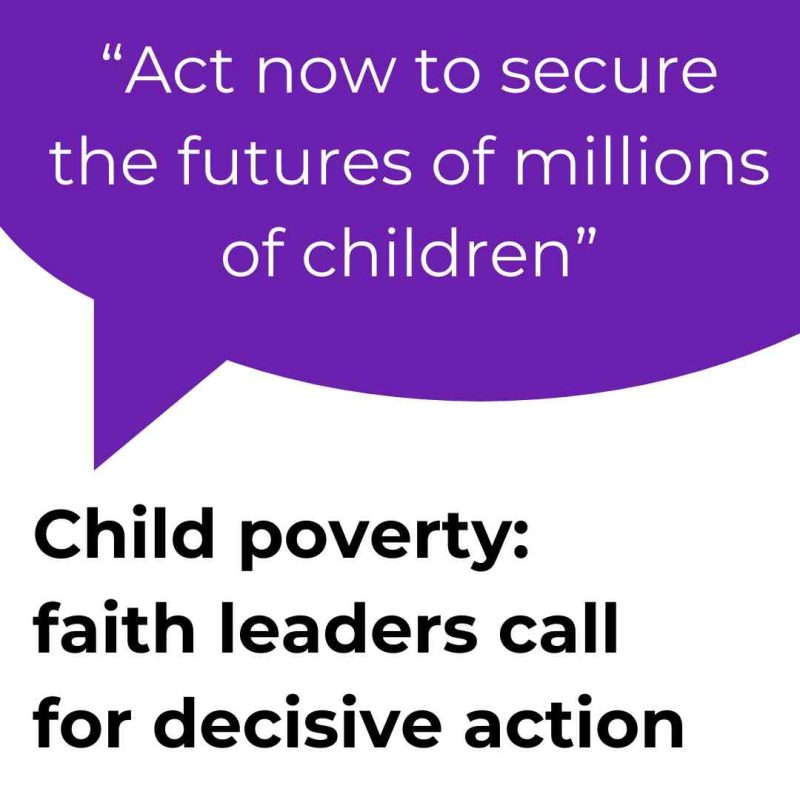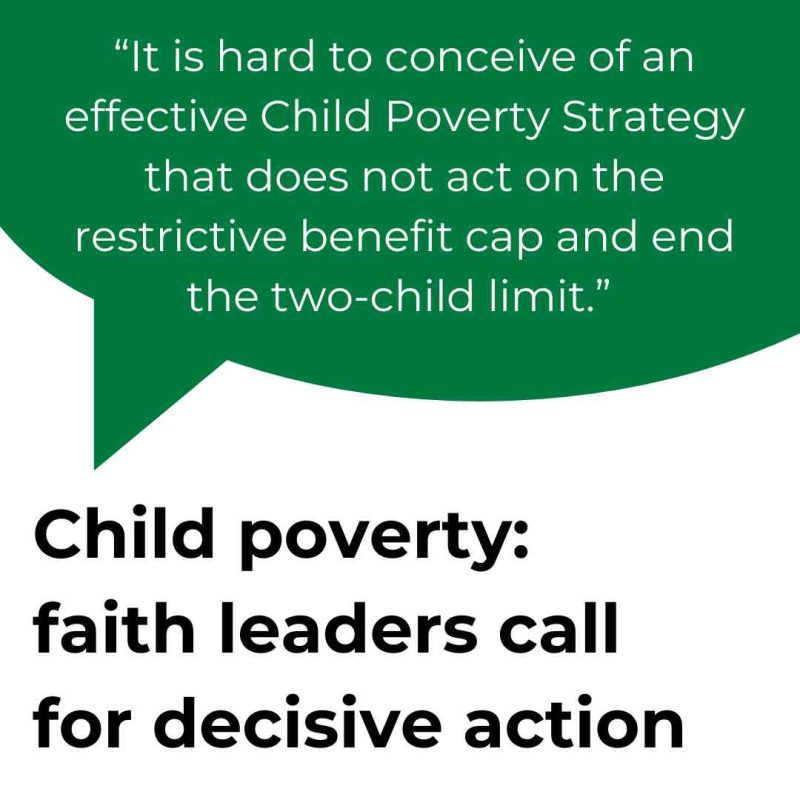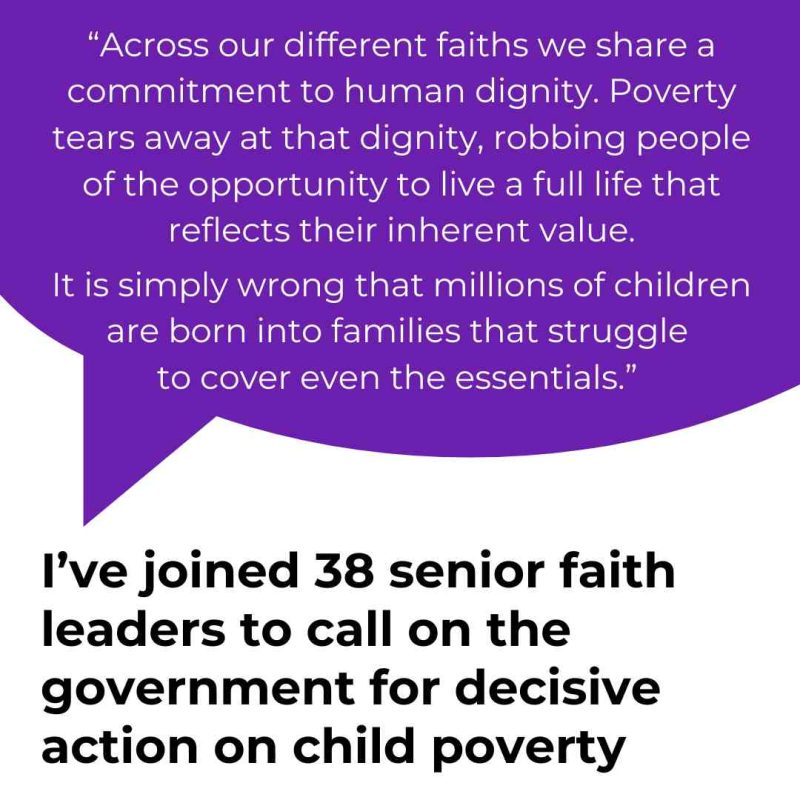Catriona Wheeler, the General Assembly Moderator of the United Reformed Church, has joined faith leaders from across the UK in calling for an end to the two-child benefit cap and for more action in tackling child poverty.
In a letter, sent on 31 August, the General Assembly Moderator and 37 faith representatives wrote to the Prime Minister and the Chancellor saying that cap and poverty “robs people of the opportunity to live a full life”.
Catriona added: “Thousands of children in the UK could escape the grip of poverty with enough political will. We are calling for bold action that will give our children and the UK the chance to thrive. I remember the words of Nelson Mandela ‘There can be no keener revelation of a society’s soul than the way in which it treats its children’.”
The letter in full:
Dear Prime Minister and Chancellor,
As faith leaders from across the UK, we see the spiralling consequences of child poverty within the communities we serve. We believe that this can be reversed. As Parliament returns from recess and children return to school, we urge you to seize this moment to take decisive action to drive down child poverty.

We have never accepted that it is either necessary or inevitable that ever more children should be held back by poverty. Good policy, drawing together the work of faith groups, charities, business and government, when coupled with real investment, can be transformative. Many of us have long called for action to reduce the alarmingly high rates of child poverty in the UK. But with 4.5 million children now living in poverty, this challenge is only worsening. The recent report from the Children’s Commissioner for England, which pointed to children living in ‘Dickensian’ levels of poverty, is another in a long line of wake-up calls about the state of our communities.
Your upcoming strategy on child poverty, alongside the Budget this autumn, is an opportunity to invest in our children, both for now and for the future. However, this requires commitments that match the scale of the challenge. The recent measures to roll out breakfast clubs, support people into work and introduce early years support are important and welcome. But as you have recognised, they are a “downpayment”, insufficient to make substantial change on their own.

It is hard to conceive of an effective Child Poverty Strategy that does not act on the restrictive benefit cap and end the two-child limit. Faith groups have challenged the limit on moral grounds, rejecting the state’s abandonment of third and later children, and the poverty this inevitably causes. As many charities and think tanks have now shown, ending the two-child limit is also the most cost-effective way to address child poverty. We believe this must be a priority for your government.

We recognise that tackling child poverty will require additional government investment in challenging economic circumstances. However, prioritising our children is a moral imperative, so this is a time to be ambitious and creative. The IPPR proposal to bring gambling levies up to the levels of some of our European neighbours could raise £3.2 billion to lift 500,000 children out of poverty, offering one way to turn the tide on poverty in your upcoming Budget. We hope to see this same level of ambition matched in your strategy and Budget this autumn.
Across our different faiths we share a commitment to human dignity. Poverty tears away at that dignity, robbing people of the opportunity to live a full life that reflects their inherent value. It is simply wrong that millions of children are born into families that struggle to cover even the essentials. As we call on your government to take ambitious and properly funded action, we reaffirm our commitment to work alongside you and do all we can to tackle poverty in the communities we serve.

We encourage you to act now to secure the futures of millions of children. Childhood is precious, and with the right support, care and access to essentials, together we can enable every child to have the best start in life.
The full list of signatories is available through the Joint Public Issues Team.
Image: CDC/Unsplash.

